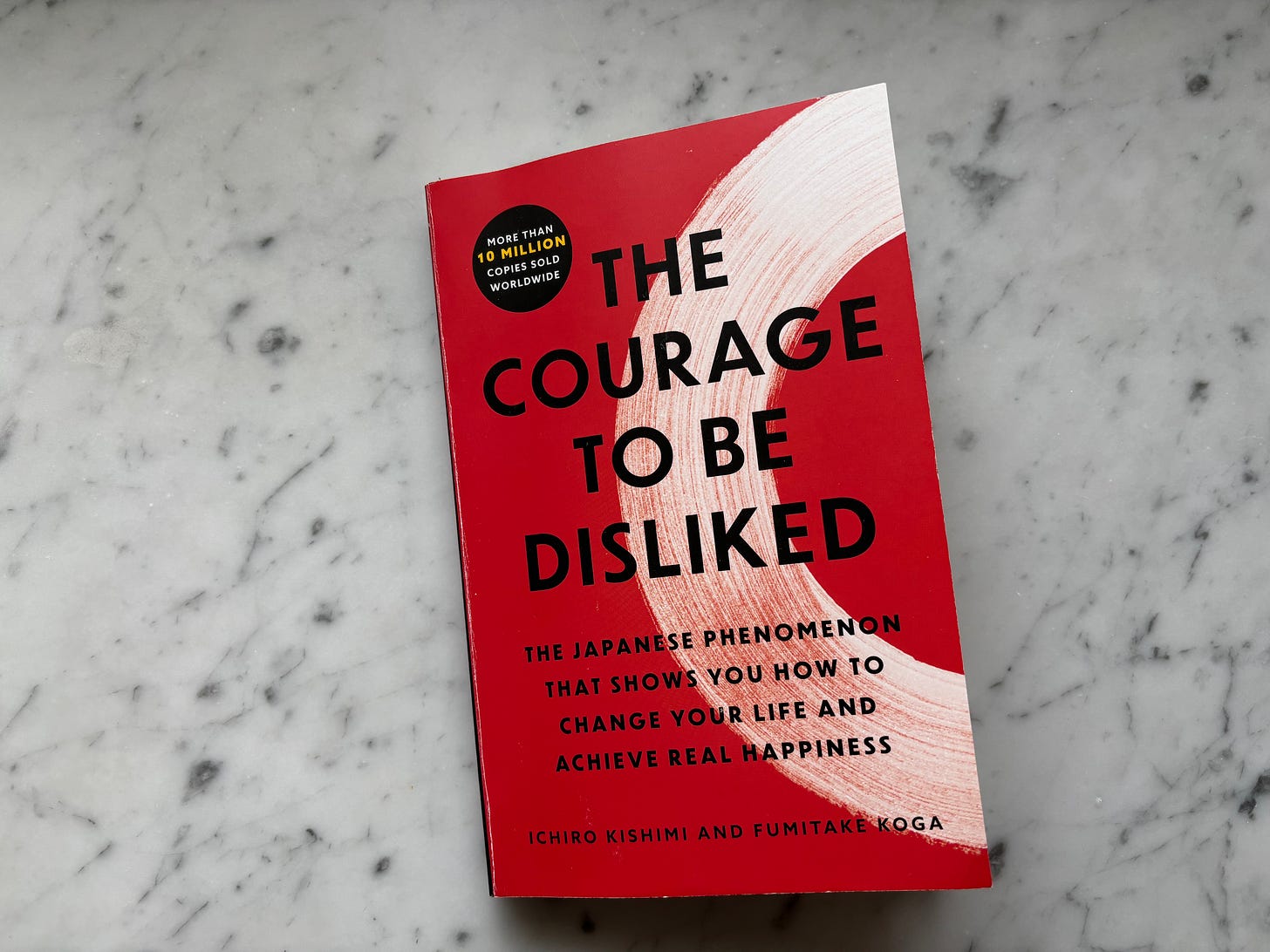Some books gently nudge you in a new direction. Then some books shove you, cheerfully, off the cliff of your assumptions — trusting you'll find a better path on the way down. The Courage to Be Disliked is one of those.
Written as a dialogue between a philosopher and a skeptical young man, the book offers a conversational way into the psychological ideas of Alfred Adler, a contemporary of Freud and Jung, but far less well known. Where Freud looks backward into childhood trauma and Jung dives deep into the collective unconscious, Adler points forward: You are not determined by your past. You are free to choose your life now.
Let me start by stating what soon becomes obvious: This is a challenging read. The pages sometimes contain provoking ideas, but I’ll get back to that. The biggest problem is that the dialogue comes off as trivial and childish. Don’t get me wrong, this is a relevant book to read, but not because of the beautiful language, but despite the lack of a convincing story.
The Book’s Radical Simplicity
At its core, the book argues something radical and straightforward: most of our suffering comes from our relationships with other people, or more precisely, from our need to be approved by them. This desire to be liked, to be acknowledged, to be seen as special or right or good, slowly traps us. And the way out, paradoxically, is to let go of all that. To risk being disliked. To stop living for others’ expectations and start living by your values.
This is not a manifesto for selfishness - quite the opposite. The book asserts that genuine freedom and joy arise not from rebellion or isolation, but from community, contribution, and the willingness to accept ourselves and others as they are, without domination or control.
Ideas That Challenge
The key ideas in this book are:
You can change your life at any time
Your past does not determine your future. What matters is the meaning you assign to your past and the goals you pursue now.All problems are interpersonal relationship problems
According to Adler, much of our distress comes from how we relate to others and our need for recognition.Separation of tasks
Don't do others’ tasks for them, and don't let others do yours. This boundary-setting helps reduce anxiety and increase autonomy.The desire for recognition is a trap
Trying to be liked by everyone leads to inauthentic living. True freedom comes from the courage to be disliked and living according to your values rather than others' expectations.Live in the present
The book challenges the idea of trauma-based determinism, suggesting instead that people use past experiences as tools to achieve present goals.
Whether you agree or not, the book is designed to challenge you. What resonates with you is probably a very personal thing.
In a world where we often confuse anxiety with identity and productivity with self-worth, it's refreshing to encounter a book that invites us to... stop. To breathe. To stop blaming others. To reflect. To choose again.


